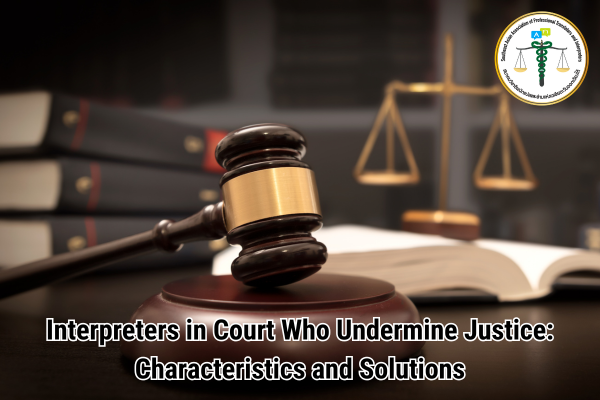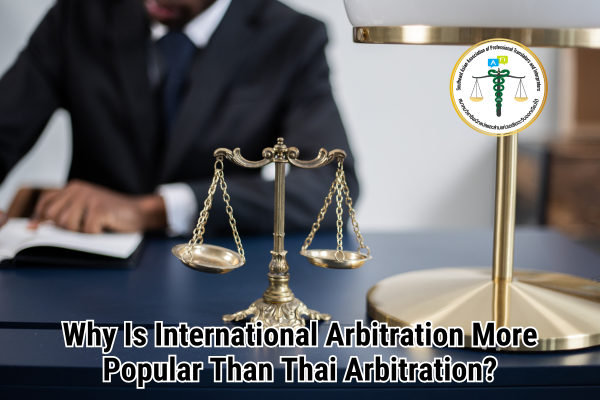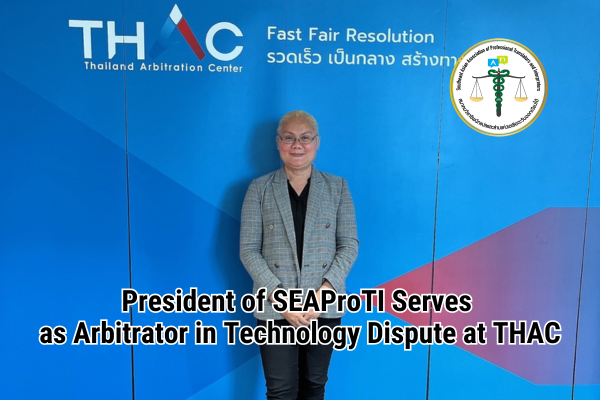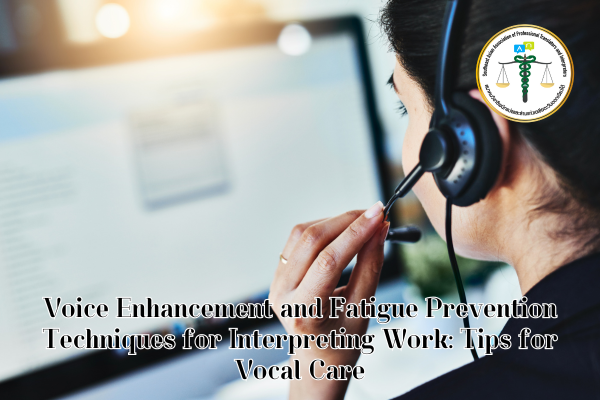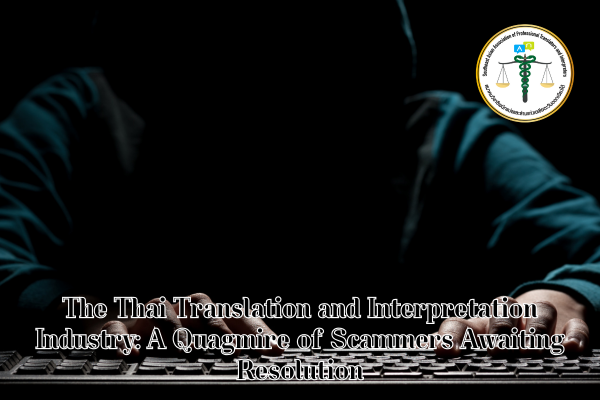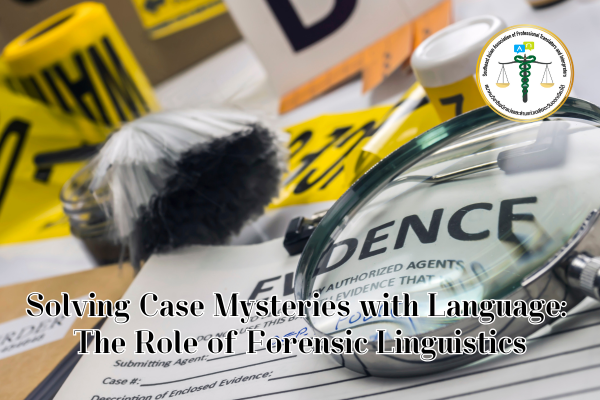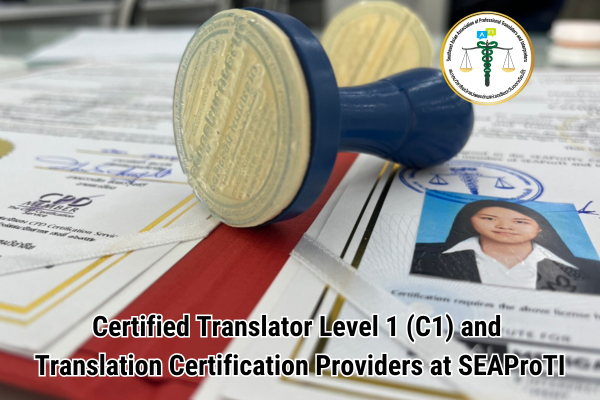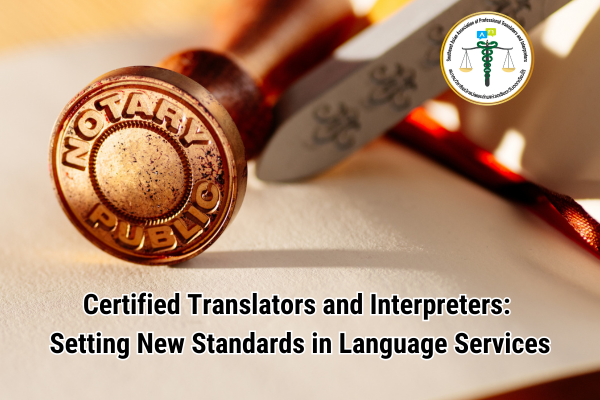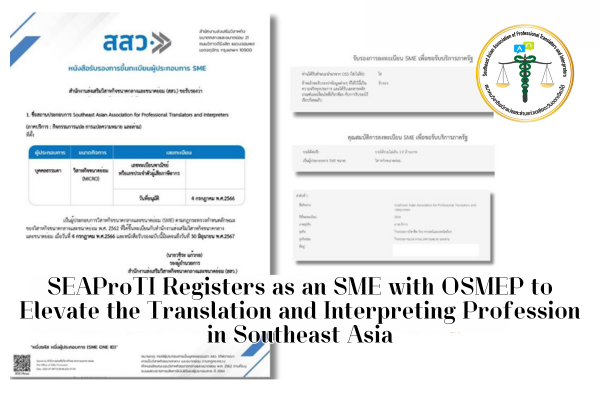Interpreters in Court Who Undermine Justice: Characteristics and Solutions
26 January 2025, Bangkok – In the justice system, especially in courts, interpreters play a critical role in bridging the gap between languages to ensure mutual understanding among all parties. However, if interpreters lack the necessary qualifications or exhibit improper behavior, they may compromise the justice process. This article discusses the characteristics of interpreters who undermine justice and proposes solutions to prevent these issues.
Characteristics of Interpreters Who Undermine Justice
Inability to Translate Due to Lack of Vocabulary or Understanding
Interpreters who lack proficiency in the language or legal terminology may produce inaccurate translations or fail to convey the content entirely. For instance, failing to understand legal terms like “motion” or “closing statement” can distort court proceedings.
Misinterpretation or Miscommunication
Interpreters who mistranslate words or phrases due to insufficient knowledge of the language or context can distort critical meanings. For example, misinterpreting “self-defense” as “attack” could directly affect the case outcome.
Unnecessary Additions
Adding information not present in the original message due to misunderstanding the context or asking excessive questions may lead to inaccuracies. For example, including details not mentioned in the court’s or attorney’s questions can alter the case’s integrity.
Deliberately Muting the Translation
Some interpreters intentionally translate softly to avoid scrutiny, especially when aware of mistakes or when intentionally misinterpreting to benefit themselves or a particular party.
Lack of Neutrality
Interpreters who favor witnesses or the hiring party, such as by muting their translations or omitting critical content, can distort the justice process. For instance, interpreters with legal knowledge might intentionally omit parts of testimony without justification. However, interpreters are required to translate comprehensively so judges can decide which elements to consider or dismiss.
Solutions and Preventative Measures
Using Certified Interpreters
Organizations like the Southeast Asian Association of Professional Translators and Interpreters (SEAProTI) or other entities that certify interpreters’ qualifications and uphold their professional ethics can ensure quality. Certified interpreters are less likely to undermine justice, and if they do, the certifying body can impose disciplinary measures to prevent recurrence.
Avoid Using Interpreters with Conflicts of Interest
Avoid appointing interpreters with close ties to witnesses, such as relatives (Tier 1) or those who have previously worked with a party in the case (Tier 2). Examples of scenarios to avoid include:
- Interpreters who are attorneys in the case (Tier 2).
- Interpreters who have prepared or translated documents in the case (Tier 2).
- Interpreters who have participated in meetings regarding the case (Tier 2).
Use Neutral and Accountable Interpreters
If interpreters with potential conflicts of interest must be used, their background and neutrality should be thoroughly verified. Employing opposing counsel to hire interpreters for cross-checking translations, or enlisting foreign language-proficient attorneys for oversight, can safeguard against inaccuracies.
Training and Establishing Professional Standards
Interpreters should receive training in ethics, language proficiency, and maintaining neutrality. Relevant organizations, such as professional associations or certifying bodies, should host activities that enhance understanding of interpreters’ roles in the justice system.
Monitoring and Auditing Interpreter Work
Audio or video recordings of interpreters’ work should be used as evidence to verify translation accuracy. Additionally, expert teams or specialists should evaluate the quality of translations. While this may not be permissible in all cases in Thailand, it is allowed in some family court cases, arbitration, bankruptcy proceedings, and other specific contexts. Recording is subject to the court’s discretion and must be formally requested.
Conclusion
Using unqualified interpreters or those who lack professional ethics can severely undermine the justice process. Interpreters who mistranslate, add unnecessary details, translate softly, or display bias disrupt the transparency and fairness of the justice system. Therefore, selecting qualified, neutral interpreters with appropriate oversight is crucial for maintaining fairness in court proceedings.
The role of interpreters in the justice system extends beyond translation; it involves acting as a bridge to ensure accurate understanding between languages. This requires expertise, responsibility, and adherence to professional ethics.
SEAProTI’s certified translators, translation certification providers, and certified interpreters:
The Southeast Asian Association of Professional Translators and Interpreters (SEAProTI) has officially announced the criteria and qualifications for individuals to register as “Certified Translators,” “Translation Certification Providers,” and “Certified Interpreters” under the association’s regulations. These guidelines are detailed in Sections 9 and 10 of the Royal Thai Government Gazette, issued by the Secretariat of the Cabinet under the Office of the Prime Minister of the Kingdom of Thailand, dated July 25, 2024, Volume 141, Part 66 Ng, Page 100.
To read the full publication, visit: the Royal Thai Government Gazette
ล่ามแปลในศาลที่ทำลายกระบวนการยุติธรรม: คุณสมบัติและวิธีแก้ไข
26 มกราคม 2568, กรุงเทพมหานคร – ในกระบวนการยุติธรรม โดยเฉพาะในศาล ล่ามมีบทบาทสำคัญในการถ่ายทอดข้อมูลระหว่างภาษาต่าง ๆ เพื่อให้ความเข้าใจตรงกันระหว่างทุกฝ่าย หากล่ามไม่มีคุณสมบัติที่เหมาะสมหรือมีพฤติกรรมที่ไม่ถูกต้อง อาจทำให้กระบวนการยุติธรรมเสียหายได้ บทความนี้จะกล่าวถึงลักษณะของล่ามที่ทำลายกระบวนการยุติธรรม รวมถึงแนวทางแก้ไขเพื่อป้องกันปัญหาเหล่านี้
ลักษณะของล่ามที่ทำลายกระบวนการยุติธรรม
-
แปลไม่ได้เพราะไม่รู้คำศัพท์หรือไม่เข้าใจภาษาที่ใช้
-
ล่ามที่ไม่มีความเชี่ยวชาญด้านภาษาหรือคำศัพท์เฉพาะในกระบวนการกฎหมาย อาจทำให้เกิดการแปลที่ผิดพลาดหรือไม่สามารถแปลเนื้อหาได้ครบถ้วน ตัวอย่างเช่น การไม่เข้าใจคำศัพท์ทางกฎหมาย เช่น “คำร้องขอ” หรือ “คำแถลงปิดคดี” อาจทำให้การพิจารณาคดีผิดเพี้ยน
-
-
แปลผิด ความหมายคลาดเคลื่อน
-
ล่ามที่แปลคำพูดหรือข้อความผิดเพราะไม่มีความรู้ด้านภาษาและบริบท อาจทำให้ความหมายที่สำคัญถูกบิดเบือน เช่น การแปลคำว่า “self-defense” (การป้องกันตัวเอง) ผิดเป็น “attack” (การโจมตี) อาจส่งผลต่อการตัดสินคดีโดยตรง
-
-
แปลเกินความจำเป็น
-
การแปลที่เพิ่มข้อมูลที่ไม่ได้มีอยู่ในต้นฉบับเพราะล่ามไม่เข้าใจบริบท และตั้งคำถามเกินความจำเป็น อาจทำให้ข้อมูลบางส่วนผิดเพี้ยน ตัวอย่างเช่น การเพิ่มรายละเอียดที่ไม่ได้มีอยู่ในคำถามของศาลหรือทนาย
-
-
แปลเสียงเบาเพื่อกลบเกลื่อน
-
ล่ามบางคนจงใจแปลเสียงเบาเพื่อหลีกเลี่ยงการตรวจสอบ โดยเฉพาะในกรณีที่ล่ามรู้ตัวว่าแปลผิด หรือมีความตั้งใจแปลผิดเพื่อสร้างประโยชน์ให้กับตนเองหรือฝ่ายหนึ่งฝ่ายใด
-
-
ล่ามขาดความเป็นกลาง
-
ล่ามที่แปลเข้าข้างพยานหรือฝ่ายที่จ้างงานตนเอง เช่น การแปลเสียงเบาเพื่อไม่ให้คนอื่นได้ยิน หรือการตัดทอนเนื้อหาสำคัญ อาจทำให้กระบวนการยุติธรรมถูกบิดเบือนไปจากความจริง โดยเฉพาะล่ามที่มีความรู้ด้านกฎหมาย มีแนวโน้มที่จะตัดข้อความบางอย่างของพยานออกไปโดยพละการ ซึ่งในความเป็นจริง ล่ามต้องแปลให้ครบ เพื่อให้ผู้พิพากษาใช้ดุลพินิจอีกครั้งในการเก็บคำหรือละทิ้งคำ ในบริบทการบันทึกแบบ “อมความ” หรือเลือกเฉพาะคำที่มีผลในการพิจารณาคดีของผู้พิพากษา
-
วิธีป้องกันและแก้ไขปัญหา
-
การเลือกใช้ล่ามที่มีการรับรองคุณภาพ
-
หน่วยงานที่รับรองคุณภาพล่าม เช่น สมาคมวิชาชีพนักแปลและล่าม (SEAProTI) หรือหน่วยงานใดก็ได้ ที่มีหน้าที่รับผิดชอบ (Liable) ต่อคุณภาพการทำงานและจรรยาบรรณของล่าม ล่ามที่ผ่านการรับรองจากหน่วยงานเหล่านี้มีโอกาสน้อยที่จะทำให้กระบวนการยุติธรรมเสียหาย หรือหากเกิดความเสียหาย หน่วยงานที่เป็นองค์กรรับรองจะมีมาตรการทางวินัยอย่างใดอย่างหนึ่งกับล่ามที่ไม่ปฏิบัติตามจรรยาบรรณวิชาชีพ เพื่อป้องกันไม่ให้เกิดการกระทำผิดซ้ำ
-
-
หลีกเลี่ยงการใช้ล่ามที่มีส่วนได้ส่วนเสีย
-
ไม่ควรใช้ล่ามที่มีความสัมพันธ์ใกล้ชิดกับพยาน เช่น เป็นญาติ (Tier 1) หรือเคยทำงานร่วมกับฝ่ายหนึ่งฝ่ายใดในคดีนั้น (Tier 2) เพราะอาจทำให้ล่ามมีความลำเอียง ตัวอย่างของสถานการณ์ที่ควรระวัง ได้แก่:
-
ล่ามที่เป็นทนายความในคดีนั้น (Tier 2)
-
ล่ามที่เคยจัดเตรียมเอกสารหรือแปลเอกสารในคดีนั้น (Tier 2)
-
ล่ามที่เคยเข้าร่วมประชุมเกี่ยวกับคดี (Tier 2)
-
-
-
ใช้ล่ามที่เป็นกลางและตรวจสอบได้
-
หากต้องใช้ล่ามที่มีส่วนได้ส่วนเสีย ควรตรวจสอบประวัติล่าม ตรวจสอบความเป็นอิสระและเป็นกลาง ควรให้ฝ่ายตรงข้ามจ้างล่ามมาเพื่อตรวจสอบคำแปล หรือหากทนายฝ่ายตรงข้ามมีความรู้ด้านภาษาต่างประเทศ ให้ทนายช่วยตรวจสอบและคัดค้านในกรณีที่มีการแปลผิด
-
-
จัดฝึกอบรมและสร้างมาตรฐานวิชาชีพ
-
ล่ามควรได้รับการฝึกอบรมในด้านจรรยาบรรณ ความเชี่ยวชาญด้านภาษา และการรักษาความเป็นกลาง หน่วยงานที่เกี่ยวข้อง เช่น สมาคมวิชาชีพ หรือ หน่วยงานรับรอง ฯลฯ ควรจัดกิจกรรมที่ส่งเสริมความเข้าใจในบทบาทของล่ามในกระบวนการยุติธรรม
-
-
การตรวจสอบและติดตามการทำงานของล่าม
-
ควรมีการบันทึกเสียงหรือวิดีโอระหว่างการทำงานของล่าม เพื่อใช้เป็นหลักฐานในการตรวจสอบความถูกต้องของการแปล นอกจากนี้ ควรมีทีมตรวจสอบหรือผู้เชี่ยวชาญที่สามารถประเมินคุณภาพงานแปลได้ สำหรับประเทศไทย ในบางคดีทำแบบนี้ไม่ได้ แต่บางคดี เช่น คดีครอบครัวของบางศาล คดีอนุญาโตตุลาการ และคดีบางคดีในศาลล้มละลาย ฯลฯ อาจอนุญาตให้มีการบันทึกกระบวนพิจารณาได้ ตามคำร้องขอ ทั้งนี้ อยู่ที่ดุลพินิจของศาล
-
สรุป
การใช้ล่ามที่ไม่มีคุณสมบัติที่เหมาะสมหรือขาดจรรยาบรรณ อาจนำไปสู่การทำลายกระบวนการยุติธรรมอย่างร้ายแรง ล่ามที่แปลผิด แปลเกิน แปลเบา หรือแปลเข้าข้างฝ่ายใดฝ่ายหนึ่ง จะทำให้ความยุติธรรมไม่สามารถดำเนินการได้อย่างโปร่งใสและยุติธรรม ดังนั้น การคัดเลือกและใช้ล่ามที่มีคุณภาพ มีความเป็นกลาง และมีการตรวจสอบที่เหมาะสมเป็นสิ่งสำคัญในการรักษาความยุติธรรมในกระบวนการศาล
การทำงานของล่ามในกระบวนการยุติธรรมจึงไม่ใช่เพียงการแปลภาษา แต่ยังรวมถึงการเป็นสะพานเชื่อมความเข้าใจที่ถูกต้องระหว่างภาษาต่าง ๆ ซึ่งต้องอาศัยทั้งความเชี่ยวชาญ ความรับผิดชอบ และจรรยาบรรณวิชาชีพ
เกี่ยวกับนักแปลรับรอง ผู้รับรองการแปล และล่ามรับรองของสมาคมวิชาชีพนักแปลและล่ามแห่งเอเชียตะวันออกเฉียงใต้
สมาคมวิชาชีพนักแปลและล่ามแห่งเอเชียตะวันออกเฉียงใต้ (SEAProTI) ได้ประกาศหลักเกณฑ์และคุณสมบัติผู้ที่ขึ้นทะเบียนเป็น “นักแปลรับรอง (Certified Translators) และผู้รับรองการแปล (Translation Certification Providers) และล่ามรับรอง (Certified Interpreters)” ของสมาคม หมวดที่ 9 และหมวดที่ 10 ในราชกิจจานุเบกษา ของสำนักเลขาธิการคณะรัฐมนตรี ในสำนักนายกรัฐมนตรี แห่งราชอาณาจักรไทย ลงวันที่ 25 ก.ค. 2567 เล่มที่ 141 ตอนที่ 66 ง หน้า 100 อ่านฉบับเต็มได้ที่: นักแปลรับรอง ผู้รับรองการแปล และล่ามรับรอง


